
ra3rn/shutterstock
For far too long it’s been the case that philanthropy’s biggest funders and figureheads are men, typically white men, who control the lion’s share of philanthropic capital and take the credit for whatever philanthropic achievements are the talk of the day. Yet going all the way back to the original Gilded Age, it was often the proverbial “woman behind the man” who set the agenda, convened the meetings and actually got the money out the door.
Lately, there have been significant advancements in terms of the real power and control harnessed by women in philanthropy. Today’s wealthiest apex donors include more women than ever before, and we finally see more gender inclusivity at the top levels of foundation leadership.
This tracks with larger developments. Given widened wealth inequality in the U.S., there are simply more billionaires, hence more billionaire power couples with both spouses engaged in giving. And recently, through divorces or deaths, more incredibly powerful female philanthropists have emerged. In addition, more self-made women have turned to philanthropy, tapping significant fortunes. Another development is a general trend toward democratization in philanthropy, including internal DEI practices among grantmakers who now set explicit benchmarks for diversity in leadership.
Of course, we don’t want to overplay the argument. Women, racial and ethnic minorities, and LGBTQI and gender nonbinary people are still underrepresented in power positions in philanthropy. This is a major reason that so-called “women’s issues” like maternal healthcare, gender-based violence, abortion rights, political access and gender equity remain substantially underfunded.
Still, the overall trendline is clear: More women are wielding more power in philanthropy. This list seeks to capture this development by spotlighting those women at the top of the sector. In compiling this list, our definition of power was loose. As we outlined in our very first IP Power List, we think of power simply as the ability to make things happen in philanthropy. Some women on this list are among the wealthiest in the United States. Wealth is, after all, a force multiplier: Those with great wealth and the intent to spend it philanthropically can more easily build power. But wealth is by no means requisite, and some very large donors aren’t included here.
Many on this list have a combination of money and the ability to do things with it. Others aren’t themselves wealthy, but hold substantial control or influence over the donor class, a philanthropic institution, or the larger nonprofit and advocacy ecosystem that drives much of what happens in philanthropy. Taken together, these women reveal a dynamic philanthrosphere that is in a state of flux. Today’s apex donors are active in philanthropy at a larger scale than ever before, but some are choosing to deploy wealth in a more hands-off or collaborative manner that ultimately transfers power to others.
As a word of caution, we should note that this list, while carefully considered and informed by IP’s deep reporting and research, is subjective. We also recognize that many individuals — including activists, writers, organizers and scholars — influence philanthropy but don’t primarily work within it, which is necessary to qualify. Finally, we would be remiss not to mention that in the era of dark money and DAFs, there are surely powerful female philanthropists that we’re unaware of, or at least unaware of their true reach. This is the reality of today’s big philanthropy.
The threefold breakdown of the Power 50 is inspired by the ingredients of wealth, position and influence that are key to power in the sector:
The Megadonors: Giving by the super rich has surged along with their vast fortunes in recent years. As Inside Philanthropy writer Philip Rojc recently wrote, “A boatload of billionaires are currently remaking philanthropy in their preferred image.” Typically, this philanthropy is associated with well-known men, mostly from tech and finance. But the spouses of these men often play an equal or greater role in the couple’s philanthropy. A number of them are spotlighted here, along with women whose fortunes are self-made, or derive from divorce, widowhood or inheritance.
The Organization Heads: The heads of philanthropic organizations wield considerable power as they shape grantmaking priorities, forge partnerships, inspire their peers, and often determine who gets funded, when, and why. And today more than ever before, a number of these leaders are women. In some cases, the amount of grantmaking may be relatively modest, but is strategically targeted or influential such that these leaders have an outsized impact.
The Catalysts: Power comes easily to those who control great wealth. But another kind of power in philanthropy is exercised by those with a knack for influencing, inspiring and teaching others. These catalytic leaders can reshape the norms and priorities of the sector or aggregate major giving power by rallying many smaller donors behind a common cause. Some do so as leaders of small or midsized philanthropies that wield influence far beyond their assets, others through directing donor networks.
A final note on the creation of this list. Back in 2014, we published our first list of powerful women in philanthropy — at the time, it was capped at 15, which now seems quaint. In 2016, we debuted the “50 Most Powerful Women” list, an expanded accounting. It’s striking how much has changed. As recently as 2016, so few women helmed the largest foundations that it was obvious who to place on the list. Today, it was a more challenging task. This list reflects a sector that is truly striving for — though not yet achieving — equity in leadership.
Research and text by Katherine Don and David Callahan, in collaboration with IP’s editorial team.
Laura Arnold, Co-Founder and Co-Chair, Arnold Ventures
Laura and John Arnold jumped into philanthropy in 2010, as John was winding down his career as a hugely successful hedge fund manager, and quickly gained a reputation as leaders in areas like criminal justice reform and healthcare. Laura, an attorney and former oil company executive, is deeply engaged in Arnold’s structure and strategies as well as its daily functioning, and is an advocate for innovative, evidence-based solutions. Forbes recently ranked the Arnolds as among only nine mega-wealthy philanthropists to have given 20% or more of their wealth.
Connie Ballmer, Co-Founder, Ballmer Group
Connie Ballmer spent decades involved in the nonprofit sector before she and her husband Steve — a former Microsoft CEO and the ninth richest person in the world — founded the Ballmer Group in 2015, instantly establishing themselves as among the most influential power couples in philanthropy. The Ballmers are major funders of climate action, antipoverty efforts in Los Angeles, Washington state and Detroit, as well as national organizations focused on economic mobility. Connie’s also an Obama Foundation board member and was a founding investor at Blue Meridian Partners.
Susan Buffett, Board Chair, Susan Thompson Buffett Foundation; Founder, the Sherwood Foundation
Inside Philanthropy once declared Susan Buffett “the most powerful woman in U.S. philanthropy not named Melinda.” While not a billionaire herself, Susan (or “Susie”) is directing the disbursement of big chunks of her father Warren’s fortune. The Susan Thompson Buffett Foundation, which Susie chairs, is the biggest private backer of reproductive health worldwide. Susie also runs the Sherwood Foundation, which focuses on the city of Omaha, and moves about a quarter-billion out the door annually. Susie chairs the Buffett Early Childhood Fund and sits on the boards of various nonprofits.
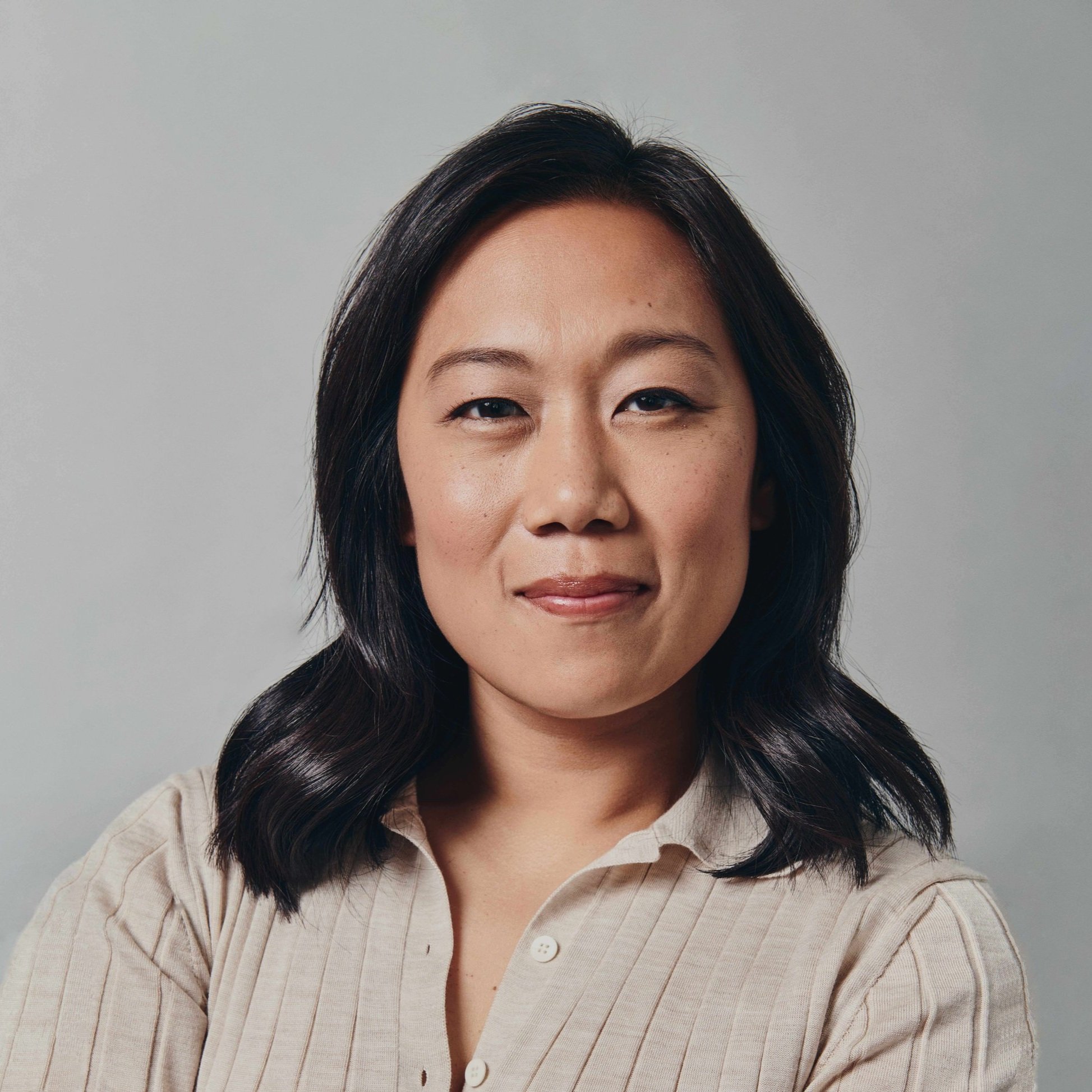
Dr. Priscilla chan, courtesy the chan zuckerberg initiative.
Dr. Priscilla Chan, Co-Founder and Co-CEO, Chan Zuckerberg Initiative
Priscilla Chan has been Mark Zuckerberg’s partner in philanthropy since the pair first funded education reform while in their mid-20s. In 2015, they cofounded the Chan Zuckerberg Initiative (CZI) and pledged to give 99% of their Facebook shares to this multifaceted LLC, which later produced several spinoff organizations. A Harvard graduate and pediatrician, Chan shapes CZI’s substantial giving in education, healthcare, housing, science and biomedical research. By all accounts, she is the leader and driving force at CZI, yet maintains a low public profile. We expect Chan to remain a powerful player in U.S. philanthropy for years to come.
Alexandra Cohen, President, Steven & Alexandra Cohen Foundation
Cohen leads a foundation she cofounded with her spouse, the controversial hedge funder Steve Cohen, that’s been steadily ramping up and gave out $122 million last year — tapping a hedge fund fortune that’s currently worth $20 billion. The Cohen Foundation has become a particularly important funder in the New York area, focusing mainly on healthcare, education and the arts. It’s also the largest philanthropic supporter of Lyme and tickborne disease research nationally and has lately become a major funder of psychedelic research. In 2020, shortly after the Cohens purchased the New York Mets, Alex created the Amazin’ Mets Foundation.
Susan Dell, Co-Founder and Chair, Michael & Susan Dell Foundation
The Michael & Susan Dell Foundation keeps a low profile even as it gives away over $160 million a year annually to “improve the lives of families and children living in urban poverty.” Elite athlete and fashion entrepreneur Susan Dell has long served as the chair of the board’s foundation, which includes just two other members — Michael and his father. The foundation has been particularly active in Austin, Texas, where the foundation is based, especially in healthcare and education.
Barbara Dalio, Co-Founder, Dalio Philanthropies; Founder and Director, Dalio Education
Tapping one of world’s largest hedge fund fortunes, the Dalios had moved more than $5 billion as of 2021 to a range of causes—including the environment and education, where Barbara has emerged as a key player. Dalio Philanthropies significantly increased its giving in recent years, and Barbara plays a key role, particularly for its education and child-focused work in New York and Connecticut. Inside Philanthropy closely follows Dalio’s work in this space, including recent setbacks involving Dalio Education’s K-12 partnerships.
Melinda French Gates, Co-Chair, Gates Foundation; Founder, Pivotal Ventures
Many have speculated about how French Gates’ philanthropy might change now that she commands a fortune independent of ex-spouse Bill Gates. Melinda remains co-chair of the Bill & Melinda Gates Foundation, where she helps direct the giving of the second-largest foundation in the world, with $70 billion in assets. She spearheaded the foundation’s involvement in women’s issues globally, including economic mobility, education, children’s health and closing the gendered “data gap.” She also pursues this work in the U.S. via her own impact organization, Pivotal Ventures, an LLC that “develops and implements innovative solutions to problems affecting U.S. women and families.”
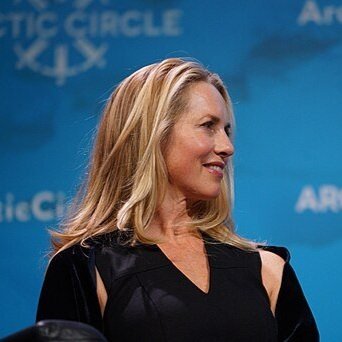
Laurene Powell Jobs, Founder and President, Emerson Collective
While Powell Jobs commands a $14 billion fortune, it’s unclear how much she gives or where exactly the money goes. Her main philanthropy, Emerson Collective, is an opaque LLC. She also has a foundation, Waverly Street Foundation, that is a major climate justice supporter — yet much of its giving goes through a DAF. All that said, it’s clear that Powell Jobs is a dedicated, powerful philanthropist who plays the leading role at Emerson, along with an estimated 200-member team. Behind the scenes, she is a leading voice and influencer among fellow apex donors in several arenas, including climate justice, education, immigration reform, violence prevention and journalism.
Pam Omidyar, Co-Founder and Board Member, The Omidyar Group; Founder, Humanity United and Hopelab
Pam Omidyar and eBay founder Pierre Omidyar have been deeply invested in philanthropy for over two decades. They were among the earliest adopters of the LLC model, founding the Omidyar Network in 2004. The network is known for its unique efforts in journalism, civic life and tech reform; its current strategic plan seeks to “reimagine capitalism.” Pam’s focus has been Humanity United, an offshoot of Omidyar Network that works globally on “peacebuilding and combating forced labor and human trafficking.”
Barbara Picower, President and Chair, JPB Foundation
The $4 billion JPB Foundation, a top funder of progressive causes, is known for its large multi-year grants, its relative opacity, and the influence of its president and board chair, Barbara Picower. “Get to know Barbara” — a leader who’s been very hands-on — and some serious money may follow. Picower is the widow of the late financier Jeffrey Picower, and she took an intensive approach to scaling up JPB when she created it in 2011. JPB quickly became a grantmaking powerhouse. Picower will be stepping down as president in 2024, but will surely remain a powerful force at the foundation behind the scenes.
Susan Pritzker, Co-Founder and Board Co-President, Libra Foundation
While Libra Foundation has been around since 2006, in recent years, the extent of Libra’s impact on progressive philanthropy has crystallized. Susan Pritzker, along with her husband and four children, steadfastly influenced the philanthropy’s growth, including Libra’s groundbreaking role in collaborative efforts like the Democracy Frontlines Fund. Susan’s daughter, Regan Pritzker, is on Libra’s board and has taken up the progressive mantle with her own foundation, Kataly Foundation. Susan has been active in the sector, sitting on the boards of Solidaire, Women’s Foundation of California and the Chicago Foundation, among other foundations and nonprofits.
Tricia Raikes, Co-Founder, Raikes Foundation
While the Seattle-based Raikes Foundation is not one of the larger foundations to emerge in recent years from the tech sector, it has rightly attracted attention for its deep commitment to racial equity and its trailblazing and collaborative programs. Raikes is a hands-on leader, working with her husband Jeff, a former Microsoft executive and later the CEO of the Gates Foundation, to guide the foundation’s efforts in the areas of youth homelessness and mental health, equitable education, and resourcing democracy.
Lauren Sanchez, Vice Chair, Bezos Earth Fund
Lauren Sanchez, the former news anchor and fiancée of Amazon founder Jeff Bezos, swiftly gained power in the world of philanthropy when she was named vice chair of the Bezos Earth Fund. Already, she’s led the unveiling of a major new commitment ($400 million pledged) to urban greenery. Sanchez’s abrupt relevance underscores the top-heavy nature of the new Gilded Age in philanthropy, where individuals wielding immense wealth (Bezos has $150 billion) shape the sector while barely denting their net worth. (As IP’s Michael Kavate noted, the $400 million urban greenery pledge is less than Bezos paid for his yacht.)
Wendy Schmidt, President, Schmidt Family Foundation; President, Schmidt Ocean Institute
The philanthropic footprint of Wendy Schmidt and former Google chairman Eric Schmidt keeps growing — along with the tech fortune that fuels it, now at over $20 billion. The Schmidts’ philanthropies have ramped up substantially and include Schmidt Futures, the Schmidt Ocean Institute and the Schmidt Family Foundation, which houses the 11th Hour Project, a climate funder. Wendy is the president of 11th Hour, reflecting her deep commitment to environmental issues, an area of the couple’s philanthropy where she takes the lead role.
Stacy Schusterman, Chair, Charles and Lynn Schusterman Family Philanthropies
The daughter of oil tycoons Charles and Lynn Schusterman, Stacy’s influence grew when her mother, Lynn, became chair emerita in 2018 (Lynn remains a powerhouse in the world of Jewish philanthropy). Now, under Stacy’s leadership, Schusterman Family Philanthropies — which gives upward of $200 million annually — launched major criminal justice and gender and reproductive equity portfolios in 2019, and a democracy and voting rights portfolio in 2021. Meanwhile, the foundation remains a steadfast supporter of Jewish causes.
MacKenzie Scott, Founder, Yield Giving
If there’s such a thing as a celebrity in the world of philanthropy, MacKenzie Scott might be it. In a few short years, she’s upended philanthropic norms by extending massive gifts to hundreds of organizations with few strings attached. The novelist-turned-philanthropist has given away $14 billion in the span of three years to a motley crew of nonprofits working in education, racial and gender equity, climate and the environment, the arts, and global giving. In 2023, Scott created a container for her giving in the form of Yield Giving. Scott has vowed to give at a rapid clip until she has “emptied the safe” — which currently holds a $35 billion fortune.
Marilyn Simons, Co-Chair, Simons Foundation
Marilyn Simons and her spouse, hedge fund billionaire Jim Simons, co-lead the largest private funder of basic science research in the country, with $4.6 billion in assets. While she recently stepped down as president of the Simons Foundation, she remains its co-chair with Jim, overseeing an era of expansion that has now increased annual spending to over $500 million. The Simonses have also bankrolled and influenced their children’s significant philanthropies: Nat Simons and Laura Baxter-Simons are major climate funders via Sea Change; Liz Simons and Mark Heising support causes through the Heising-Simons Foundation; and Audrey Cappell founded Foundation for a Just Society, a major funder of progressive causes.
Cari Tuna, Co-Founder and President, Open Philanthropy and Good Ventures
Open Philanthropy is one of the most interesting players in today’s world of large-scale giving, and president Cari Tuna plays a powerful, hands-on leadership role in the LLC’s development and strategies. Tuna is a former Wall Street Journal reporter and the spouse of Facebook and Asana cofounder Dustin Moskovitz. Under her direction, Open Philanthropy is something of a pathfinder organization as it experiments with quantitative methods for developing grantmaking priorities and makes big bets on causes that others are slow to fund, including AI research, farm animal welfare, criminal justice reform, and biosecurity.
Alice Walton, Founder, Alice L. Walton Foundation
It was difficult to select which woman from the world’s richest family to put on this list. Third-generation members Annie Proietti and Carrie Walton Penner serve on the four-member board of the Walton Family Foundation, each wielding significant capital and influence. But Alice Walton, worth $60 billion, is an indisputable power player in U.S. philanthropy, emerging in recent years as perhaps the most important private funder of the arts. Her growing portfolio in this area includes financing the Crystal Bridges Museum of American Art in Arkansas, and Art Bridges, which focuses on expanding access to American art. In 2017, she created the Alice L. Walton Foundation with a focus on arts, education and health.
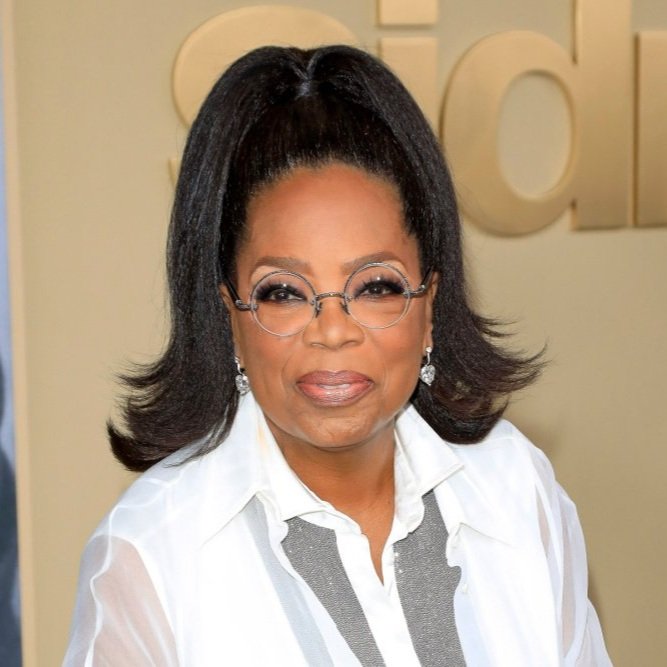
oprah winfrey. photo by Joe Seer/shutterstock
Oprah Winfrey, Founder, Oprah Winfrey Charitable Foundation
With an estimated net worth of $2.8 billion, Winfrey wields influence in philanthropy not only because of her wealth, but because of her gift for inspiring others. In 2009, she reportedly attended the small meeting where Warren Buffett and the Gateses formulated the idea for the Giving Pledge. Oprah’s myriad philanthropic endeavors are focused on women and girl’s education, health, and racial equity. Her giving takes the form of individual gifts and collaborations as well as gifts through the Oprah Winfrey Charitable Foundation and the Oprah Winfrey Foundation.
Anne Wojcicki, President and Chair, The Anne Wojcicki Foundation
While the 23andMe cofounder keeps a relatively low profile as a philanthropist, Wojcicki’s influence in the sector has steadily grown. Her foundation’s grantmaking has increased in recent years, with at least $20 million going out the door annually to a range of causes, including university research, healthcare, support for refugees, and youth services in Palo Alto, California. Wojcicki signed the Giving Pledge in 2022, suggesting that her foundation’s activities are just getting started. Anne’s sister, former YouTube CEO Susan Wojcicki, is likewise a rising philanthropist who signed the Giving Pledge this year.
Janine Yass, Co-Founder, the Yass Prize and Yass Foundation for Education
Janine Yass, spouse of Wall Street investor Jeff Yass, has lately become deeply involved in education philanthropy via the Yass Prize and the Yass Foundation for Education, which awarded $20 million in Yass Prize gifts in 2022. While the couple’s education philanthropy is new (the Yass Prize began in 2021), the rapid expansion of this operation suggests that the Yasses, worth $25 billion, will become more prominent figures in education philanthropy. The conservative power couple are also major contributors to conservative politicians and think tanks, and it appears that their activity in that space is significantly increasing.
Elizabeth Alexander, President, The Mellon Foundation
A former literature professor and renowned poet, Alexander helms the largest U.S. arts and humanities funder. Since taking over in 2018, she has wasted no time in following her mandate to do “all work, every penny, through a social justice lens.” This has included launching The Monuments Project, the Disabilities Future Initiative, the Latinx Art Visibility Initiative and Imagining Freedom, a major new fund to support groups that engage people “with lived experience of the U.S. criminal legal system.”
Ann Kelly Bolten, President, The Howard G. Buffett Foundation
Bolten is the longtime president of a foundation known for its lean staff, nimble operating style and bold grantmaking in international hotspots. Most recently, she’s helped move an eye-popping $500 million in emergency assistance to Ukraine, even as most big U.S. funders have steered wide of this war zone. Working closely with Howard Buffett, a famously hands-on and peripatetic philanthropist, Bolten has also overseen the foundation’s massive bet in Rwanda, which now totals over $400 million and includes building a new agricultural university from scratch. These outsized initiatives are part of a grantmaking portfolio that includes food security and agriculture, conflict mitigation, combating human trafficking, and public safety.
Latanya Mapp Frett, President and CEO, Global Fund for Women; incoming President and CEO, Rockefeller Philanthropy Advisors
Latanya Mapp Frett’s storied track record in philanthropy makes her a uniquely well-connected powerhouse. She began her career at the NAACP before moving to UNICEF, and from there to USAID. Later, as the executive director of Planned Parenthood Global, Frett quadrupled the size of the program. She became CEO of the Global Fund for Women in 2019, leading the gender justice funder to further expand its revenue and grantmaking reach. Frett will depart the Global Fundin 2024 to begin her new role as CEO at Rockefeller Philanthropy Advisors (RPA), as longtime founding CEO Melissa Berman will be stepping down.
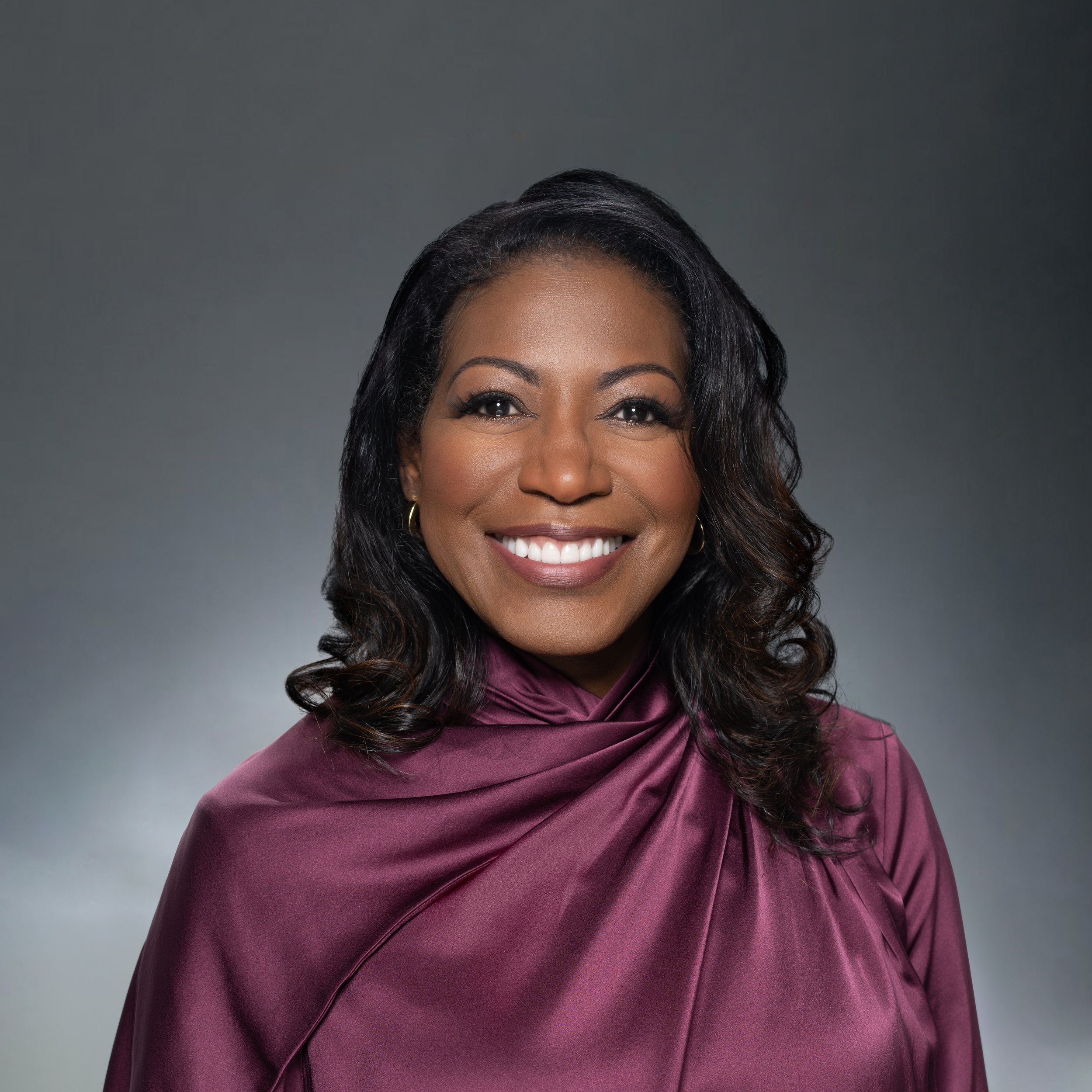
Lisa Hamilton, courtesy Annie E. Casey Foundation
Lisa Hamilton, President and CEO, Annie E. Casey Foundation; Board Chair, Living Cities
Leading one of the largest private foundations in the U.S., Hamilton has earned a reputation for promoting Casey’s mission of a “brighter future for America’s children, youth and families” through melding data and research with advocacy and evidence-based programming. She led the foundation’s shift to the U.S. South and equity-centered strategies — “we could not continue to ignore the South and the Southwest where the majority of people of color in this country live,” she said in 2022. Hamilton was previously the president of the UPS Foundation and serves on the boards of the Baltimore Community Foundation, Living Cities, and StriveTogether.
Patricia Harris, CEO, Bloomberg Philanthropies
Harris has long been one of Michael Bloomberg’s closest advisors. She was a leader at his company, served as deputy mayor in his mayoral administration, and now guides Bloomberg Philanthropies, a sprawling operation that distributed $1.7 billion last year. After taking over in 2010, Harris led an expansion of the LLC’s core interests (public health, education and climate change) to tackle issues like arts equity, gun violence and racial equity. With clear indications that Bloomberg will continue to ramp up his giving, working to whittle down a fortune now estimated at $96 billion, Harris is one of the most powerful players in U.S. philanthropy today.
Nancy Lindborg, President and CEO, the David and Lucile Packard Foundation
Since taking the lead at Packard in 2020, Nancy Lindborg has been an enterprising leader, working to deepen Packard’s already significant reputation as a sophisticated funder that thinks big — even as it remains family controlled. In 2022, Lindborg led Packard’s rollout of a new three-pronged mission that underscores the interconnectivity of equity and justice, sustainability, and healthy communities. The foundation also announced a new U.S. Democracy, Rights, and Governance program. Lindborg’s eclectic background surely informed this pivot, as she was previously the CEO of the U.S. Institute of Peace, and before that, spent years working around the world at USAID and Mercy Corps.
Michele Lord, President, NEO Philanthropy
NEO Philanthropy, formed in the 1980s as Public Interest Projects, was one of the first major funding intermediaries, serving as a middleperson between donors and grantmakers, housing collaborative funds and DAFs, and providing fiscal sponsorship and donor services. Lord has been at the helm for 20 years, overseeing NEO’s dramatic growth, and more recently, its substantial work in areas like protecting democracy (via its State Infrastructure Fund) and immigrant justice (via its Four Freedoms Fund). With nearly $150 million in revenue in 2021, NEO’s position as a powerful progressive funder continues to grow under Lord’s steady leadership.
Kathleen McLaughlin, Executive Vice President and Chief Sustainability Officer, Walmart; President, Walmart Foundation
We noted a while back that the Walmart Foundation has been getting a lot more interesting. One reason for this is that McLaughlin — who previously directed McKinsey’s Social Innovation Practice — took over in 2013 and began to advance Walmart Foundation’s ambitious global agenda for women’s empowerment, as well as economic equity, veterans support, and climate and sustainability initiatives. Walmart Foundation has become something of a vanguard example of corporate philanthropy’s expanded ambitions, often with a keen eye on reputation repair, and McLaughlin plays a pivotal role.
Abby Spencer Moffat, CEO, Diana Davis Spencer Foundation
Abby Spencer Moffat, longtime CEO of the Diana Davis Spencer Foundation, is the daughter of the foundation’s namesake and granddaughter of Heritage Foundation’s former chairman. Under her leadership, the foundation, with $1.5 billion in assets, is a steadfast supporter of national security, advocacy for a limited federal government, charter schools, and other branches of the school choice movement. Moffat has also served on the Heritage Foundation’s board of directors since 1992. She ascended to vice-chairperson, and now, according to Heritage’s website, Moffat helps chart “Heritage’s course for the 21st century.”
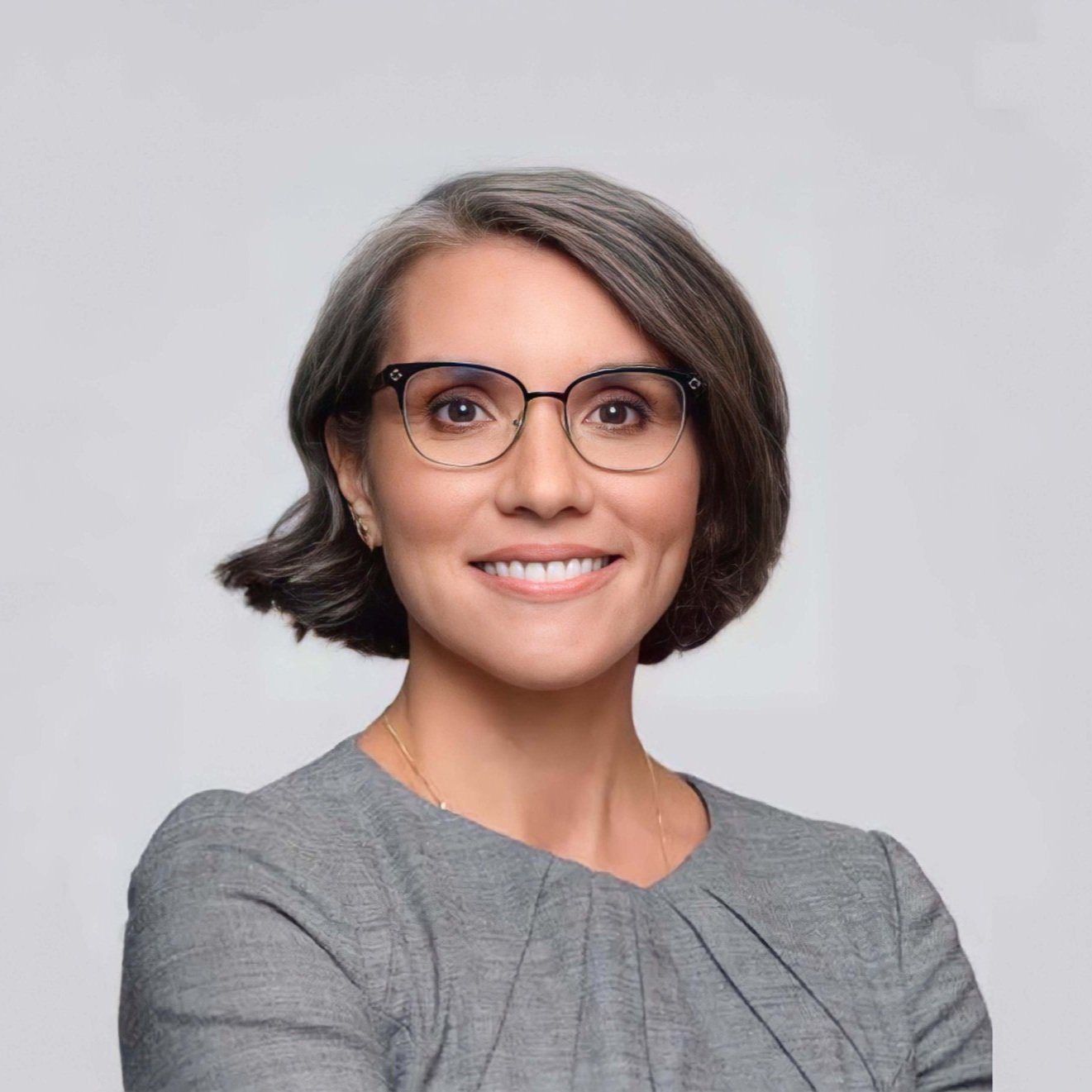
carmen rojas, courtesy Marguerite casey foundation
Carmen Rojas, President and CEO, Marguerite Casey Foundation
The Marguerite Casey Foundation, previously led by founding president Luz Vega-Marquis, is an influential progressive funder. When Rojas became CEO in 2020, she was the youngest Latina to helm a national endowed foundation. She previously founded the Workers Lab, has a deep appreciation for bottom-up movement-building, and recently became board chair at the Children’s Defense Fund. She’s made waves at Marguerite Casey by establishing a new initiative, the Freedom Scholars, and doubling down on immigration reform funding. A believer in going all-in and “dismantling the norms of philanthropy,” Rojas told Inside Philanthropy in 2021, “I don’t want to spend time in the convincing, I want to spend time in the imagining and creating.”
Reeta Roy, President and CEO, Mastercard Foundation
With $40 billion in assets, Mastercard Foundation is one of the largest private foundations in the world, and its influence has grown under Reeta Roy. The globally oriented funder made a splash in 2018 with a new Young Africa Works program, which seeks to enable 30 million young people in Africa to access “dignified and fulfilling work” by 2030. The focus on opportunity for young people is heavily influenced by Roy, who previously worked with the United Nations as well as at the Abbott Fund, where she led the way in tripling Abbott’s investments in global humanitarian programs.
La June Montgomery Tabron, President and CEO, W. K. Kellogg Foundation
The longtime head of one of the country’s largest foundations, La June Montgomery Tabron is a respected force in the sector. When she started at Kellogg in 1987, she was the first staffer who was a person of color. Under her direction, Kellogg built a substantial diversity, equity and inclusion program internally, and shifted to a racial equity focus with its grantmaking. A self-proclaimed antiracist institution, 50% of executive leadership at Kellogg and 67% of board members are people of color. Reflecting on 35 years at Kellogg, Tabron recently said, “I encourage other leaders in philanthropy to continue to be bold.”
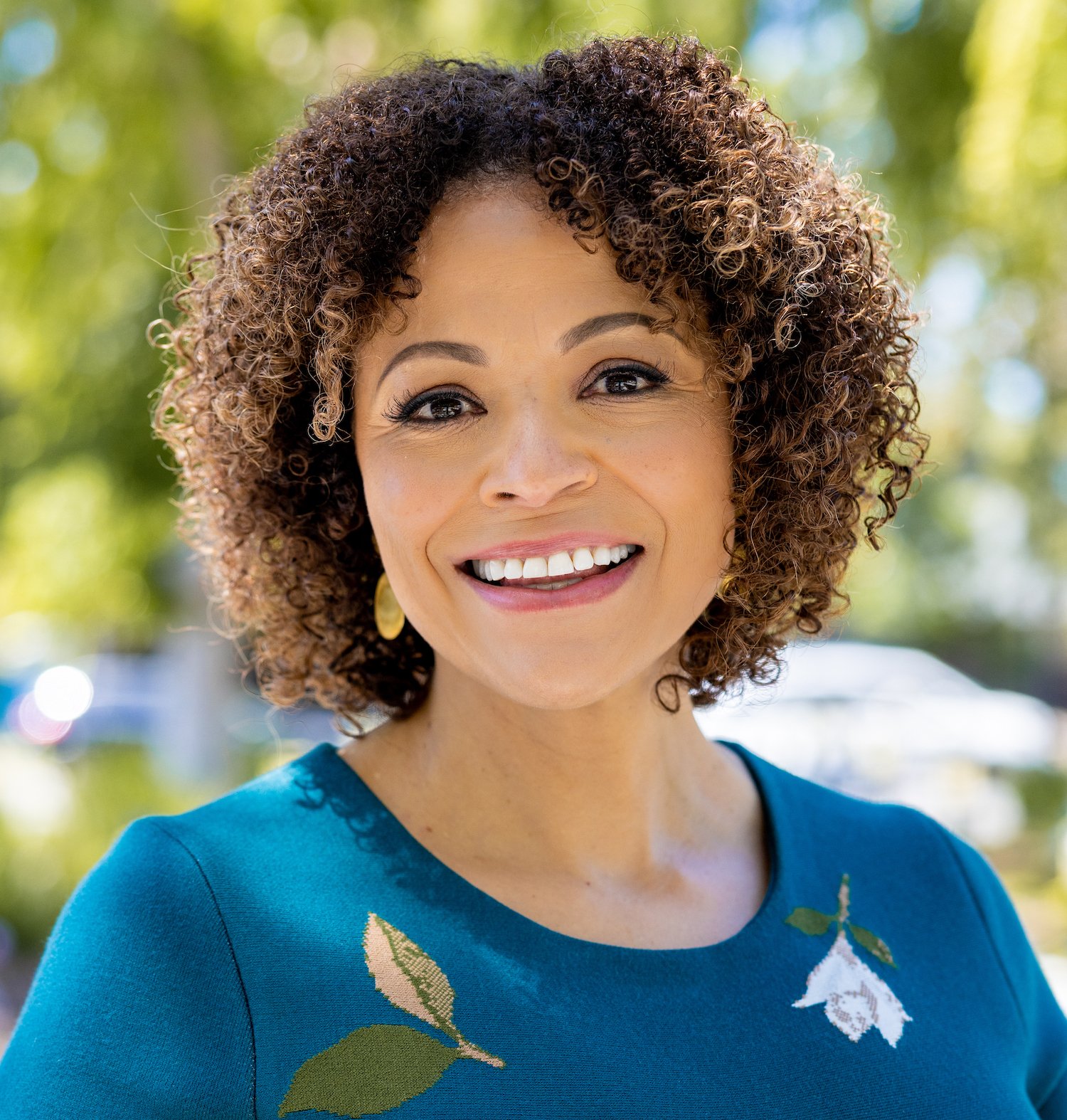
nicole taylor, courtesy Silicon Valley community foundation
Nicole Taylor, President and CEO, Silicon Valley Community Foundation
As head of the Silicon Valley Community Foundation (SVCF), Taylor oversees the largest U.S. community foundation. She took over in 2018 and spearheaded a shift in SVCF’s strategic plan to better support historically marginalized communities and advance gender, racial and economic justice in Silicon Valley. Taylor’s tenure is emblematic of why representation in leadership matters — those with different backgrounds and experiences might focus on different issues. “Being a Black woman in this kind of leadership position is, sadly, still a rarity,” Taylor told Inside Philanthropy in 2022. “Many people see my leadership as inspiring and as a mark of progress, which is immensely humbling to me.”
Fay Twersky, President and Director, Arthur M. Blank Foundation
Giving at the Blank Foundation has changed in recent years, with an expanding climate portfolio and a turn toward progressive causes like voting rights. Fay Twersky joined the foundation in 2021, and as IP reported, “Twersky’s entry on the scene is likely a prelude to more robust year-by-year giving by the Blank Foundation.” Twersky previously proved a powerful force at the Hewlett Foundation, where she led several efforts both internally and in Hewlett’s grantmaking practices. She’s also served on nonprofit boards in the U.S. and globally, including at the Van Leer Jerusalem Institute and the Center for Effective Philanthropy.
Anna Verghese, Executive Director, The Audacious Project
The Audacious Project has solidified its reputation as one of the biggest players in big-bet philanthropy, bringing together the largest foundations and wealthiest donors to engage in a unique process of vetting and ultimately selecting about 10 ambitious projects annually that each receive large awards, typically upward of $50 million apiece. The stakes are huge, but the organization is small, with Verghese leading a lean team of 15. Verghese was previously the director of the TED Prize, and was a key player in the team that launched The Audacious Project in 2018.
Elizabeth Barajas-Román, President and CEO, Women’s Funding Network
As the head of the world’s largest collaborative of women’s foundations and gender justice funders, Barajas-Román is in an influential position. The Women’s Funding Network brings together powerful partnerships, such as Prosperity Together, which invested $100 million in programs for low-income families. Barajas-Román was previously CEO at the Solidago Foundation, as well as the Women’s Fund of Western Massachusetts. Writing for Inside Philanthropy this year, she asserted that her “30,000-foot view” of the collaborative impact of women’s funds makes her feel “inspired, hopeful, and confident” about the future of gender justice, despite real setbacks like the fall of Roe v. Wade.
Sarah Haacke Byrd, CEO, Women Moving Millions
Women Moving Millions was founded in 2007 by three women determined to drive more funding for “the advancement of women and girls.” Since then, the organization’s members have collectively committed $1 billion to gender equity. A good piece of this community-driven fundraising prowess has occurred under the leadership of Sarah Haacke Byrd, who was named CEO in 2018 and, to date, has mobilized $160 million in new funding. A nonprofit veteran, Byrd previously headed the Joyful Heart Foundation. She was also a founding member of the Hive Gender Justice Climate Fund.
Cecilia Conrad, Senior Advisor, MacArthur Foundation; CEO, Lever for Change
A former economics professor, Cecilia Conrad joined MacArthur in 2013 to lead its MacArthur Fellows program. She then led the team that created 100&Change, a cutting-edge program giving $100 million grants to “help solve a critical problem of our time.” Now, Conrad is leading Lever for Change, a MacArthur-affiliated nonprofit that “holds open competitions funded and conceived by outside donors.” Lever for Change teamed up with MacKenzie Scott’s Yield Giving in an open call to award 250 unrestricted grants of $1 million apiece. Conrad consistently attracts major donors while testing new giving models, making her a powerful force in the sector.
Crystal Hayling, Executive Director, Libra Foundation
Hayling has been a powerful voice for racial justice, pushing peer philanthropists to walk the walk of antiracism. She organized the Democracy Frontlines Fund, and was the recipient of Inside Philanthropy’s 2021 “Foundation Leader of the Year” — we wrote that she shows us how “leadership at even a relatively small foundation can impact the sector.” A big believer in collaborative philanthropy, Hayling previously headed the Blue Shield of California Foundation, and serves on the boards of the Center for Effective Philanthropy, the Essie Justice Group, the Democracy Fund and Rockefeller Philanthropy Advisors.

leah hunt hendrix, courtesy way to win
Leah Hunt-Hendrix, Co-Founder, Solidaire; Co-Founder, Way to Win
Hunt-Hendrix, a Hunt family heiress, uses her influence to compel peer one-percenters to give big, think big, and practice trust-based philanthropy on behalf of progressive causes. Hunt-Hendrix was the founding executive director of Solidaire Network, where she applied the grassroots organizing wisdom learned at Occupy Wall Street to grow an organization that rapidly funds front-line social justice movements. In 2017, Hunt-Hendrix cofounded Way to Win, an LLC “homebase for progressive donors” that has moved hundreds of millions and continues to grow.
Hilary Pennington, Executive Vice President of Programs, Ford Foundation
With its $16 billion endowment and established status as leader among foundations, Ford Foundation is one of the most powerful philanthropies in the world. As the executive VP of programing, Hillary Pennington oversees Ford’s grantmaking in all areas and has helped orchestrate one of the most dynamic periods in the storied funder’s long history — including using a unique $1 billion social bond to bolster the foundation’s giving at a critical moment in 2020. Pennington was previously the director of education at the Gates Foundation, and prior to that, headed the Generations Initiative, as well as led and cofounded Jobs for the Future.
Charlotte Pera, VP and Deputy CEO, Bezos Earth Fund; former CEO, ClimateWorks Foundation
Pera has been a leading voice and champion for climate philanthropy for over two decades. She served as CEO of the ClimateWorks Foundation from 2012 to 2021, where she oversaw over $600 million in grantmaking while forging collaborations with other climate organizations at a time when climate philanthropy grew tremendously. In her new role at Bezos Earth Fund, Pera works closely with CEO Andrew Steer to “build and lead the growing organization,” which has quickly become the “biggest player by far in climate philanthropy,” as per Inside Philanthropy’s Michael Kavate.
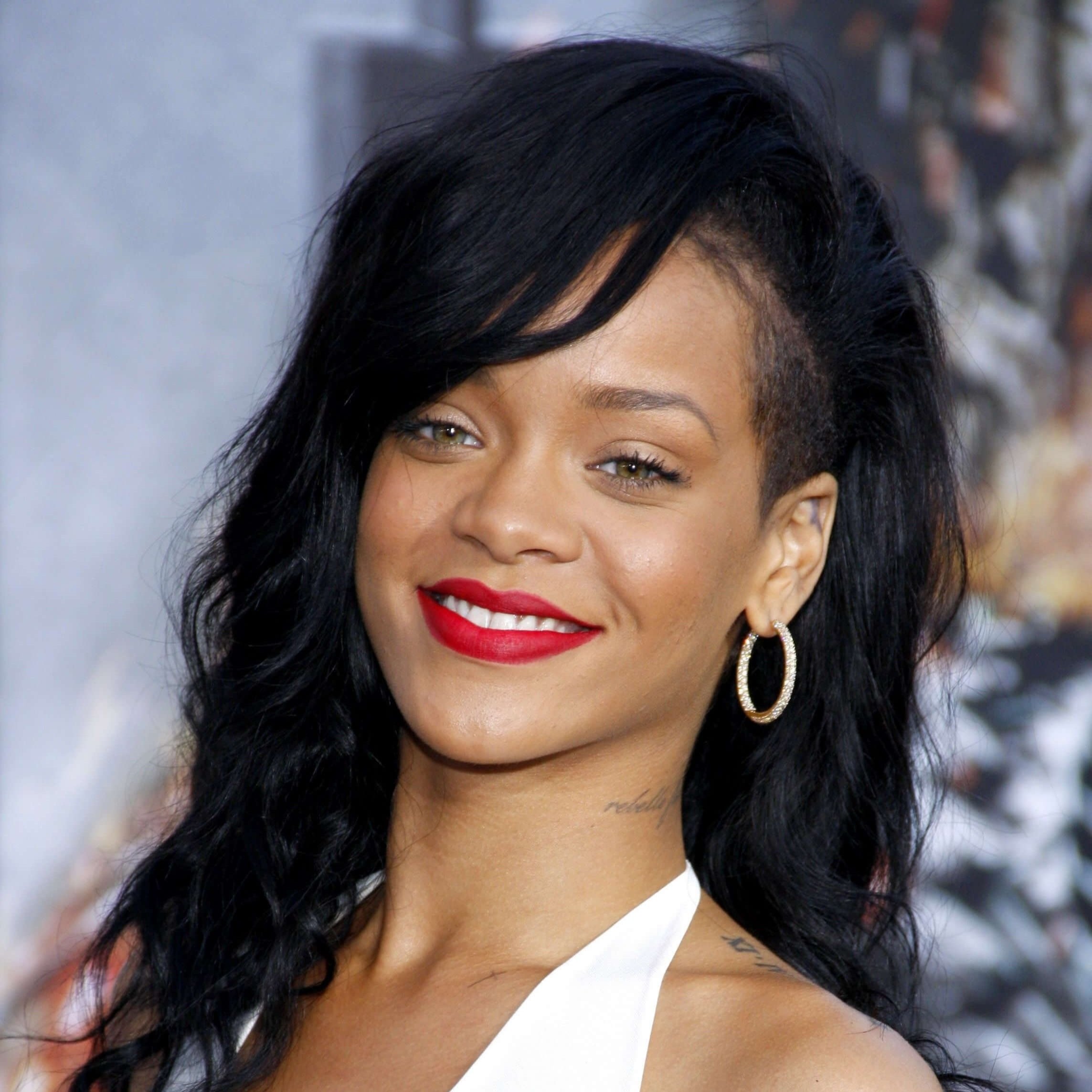
rihanna, photo by Tinseltown/shutterstock
Rihanna, Founder, Clara Lionel Foundation
With over 150 million Instagram followers, the global pop sensation has the unique ability to wield both money and influence. Rihanna’s Clara Lionel Foundation launched in 2012 as a response to Hurricane Sandy, and has since evolved into an organization focused on climate, disaster relief, health and global education. Rihanna magnifies impact by partnering with like-minded philanthropists, particularly Jack Dorsey. With its collaborative and community-driven approach, her foundation is raising the bar for celebrity philanthropy.
Nancy Roob, CEO, Blue Meridian Partners
In the years since its founding in 2016, Blue Meridian Partners has become a philanthropic powerhouse, a “big bet” funding collaborative and convener that’s pooled $4 billion to date, and is behind ambitious efforts like the Justice and Mobility Fund. Nancy Roob was the woman behind Meridian’s founding. As the CEO of the Edna Clark Foundation, Roob pioneered a form of “coordinated, collaborative investment” that later inspired Blue Meridian, which was originally a project of Edna Clark before the foundation spent down. A philanthropy veteran, Roob has worked on antipoverty strategy in the foundation world for most of her career.
Pamela Shifman, President, The Democracy Alliance
Donor networks are so on-trend in philanthropy these days that it’s easy to forget how novel the Democracy Alliance was at its 2005 founding. As we recently noted, the DA is “the original donor organizing hub for progressive funders this side of the millennium.” Since taking over the network in 2021, Schiffman has been steering it into a new era and is now working to rally the DA’s 100-plus donor partners for yet another hair-raising, high-stakes presidential election. A philanthropy veteran, Shifman previously headed the NoVo Foundation, and serves on multiple boards, including at the National Committee for Responsive Philanthropy and The Ms. Foundation.
Gloria Walton, President and CEO, The Solutions Project
Walton made a splash in the philanthrosphere when she took the reins at The Solutions Project (TSP) in 2020. TSP is an influential intermediary in the climate justice space that supports grassroots groups mostly led by women of color. Under Walton’s leadership, TSP has quadrupled its giving, ramped up its fundraising, and forged new alliances. Notably, Walton joined with Jacqui Patterson at The Chisholm Legacy Project in inspiring the Bezos Earth Fund to move $141 million to front-line communities. Walton has a rare talent for leveraging narratives and the media to expand the prominence of the grassroots climate justice movement.
Angela F. Williams, President and CEO, United Way Worldwide
United Way, “America’s favorite charity,” is also its second-largest, taking in over $2.5 billion in donations in 2021. It’s a unique nonprofit that relies on donations, yet is also a formidable grantmaker, operating myriad grant programs across the U.S. and around the world. Williams has captained this very large ship since 2021, quickly setting to work in steering United Way toward a greater focus on inclusion and equity. Other developments under her leadership include a board of trustees shakeup, the launch of a new Ukraine fund and the creation of a new advisory council to align and support the work of local and state-level United Way organizations.
This post was originally published on this site be sure to check out more of their content.






